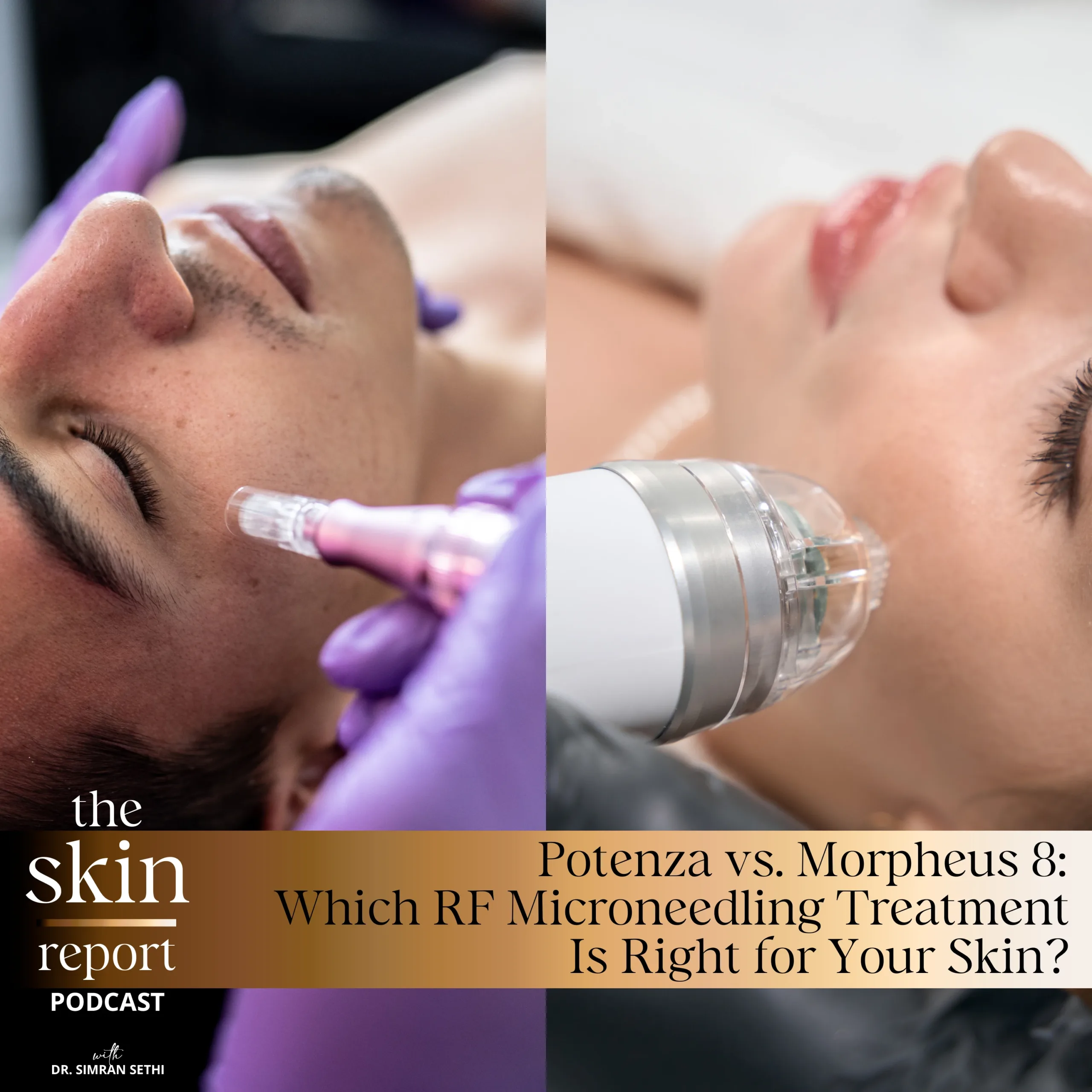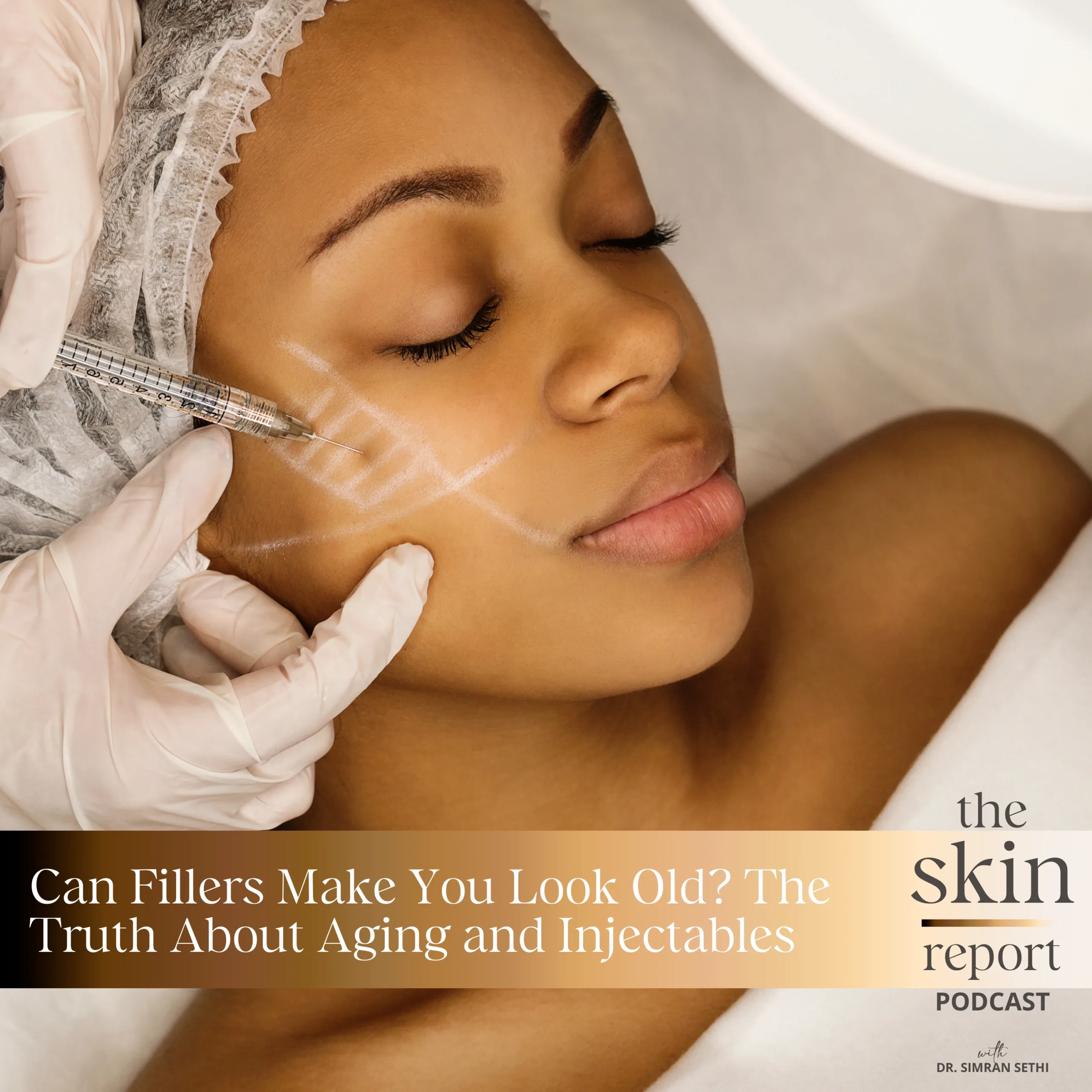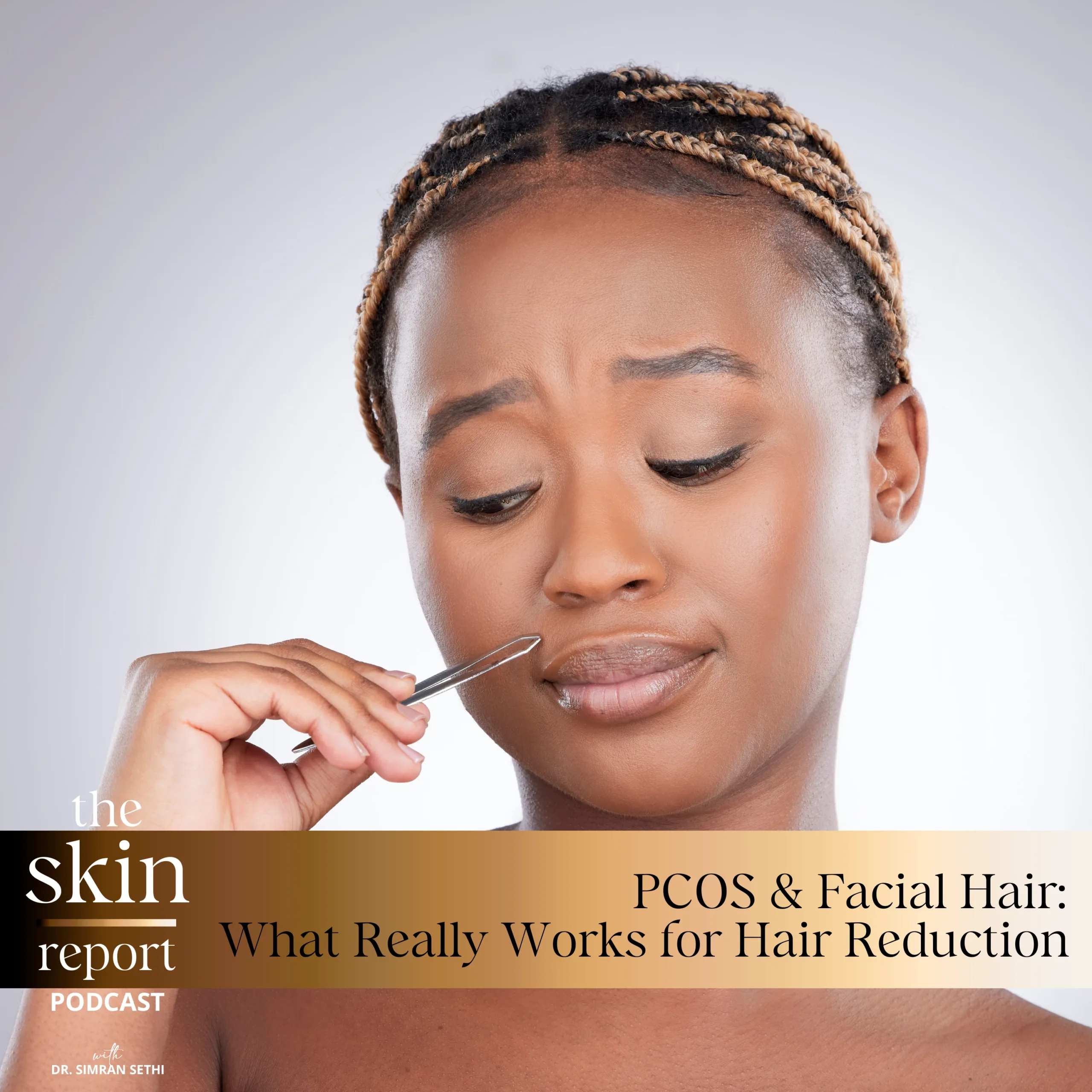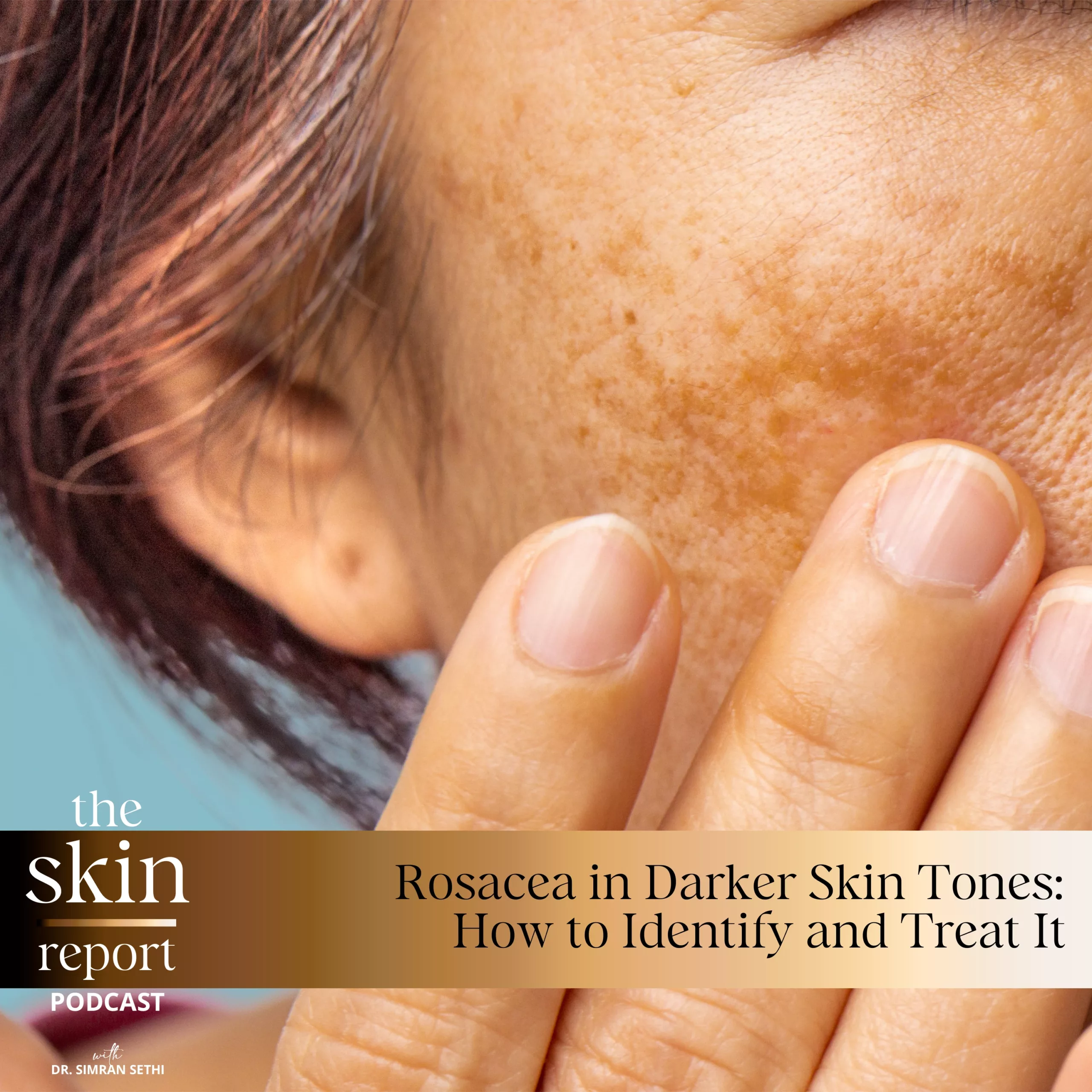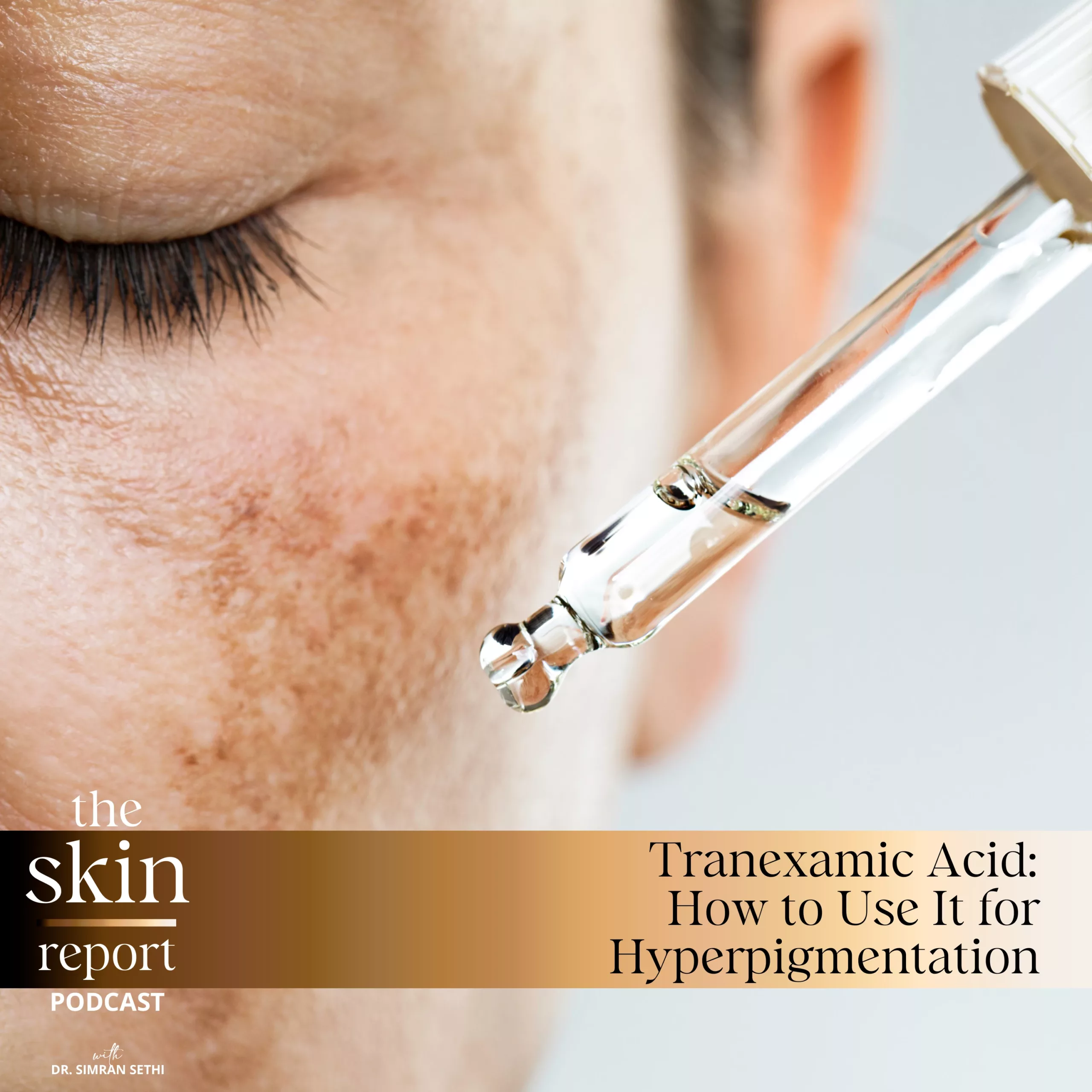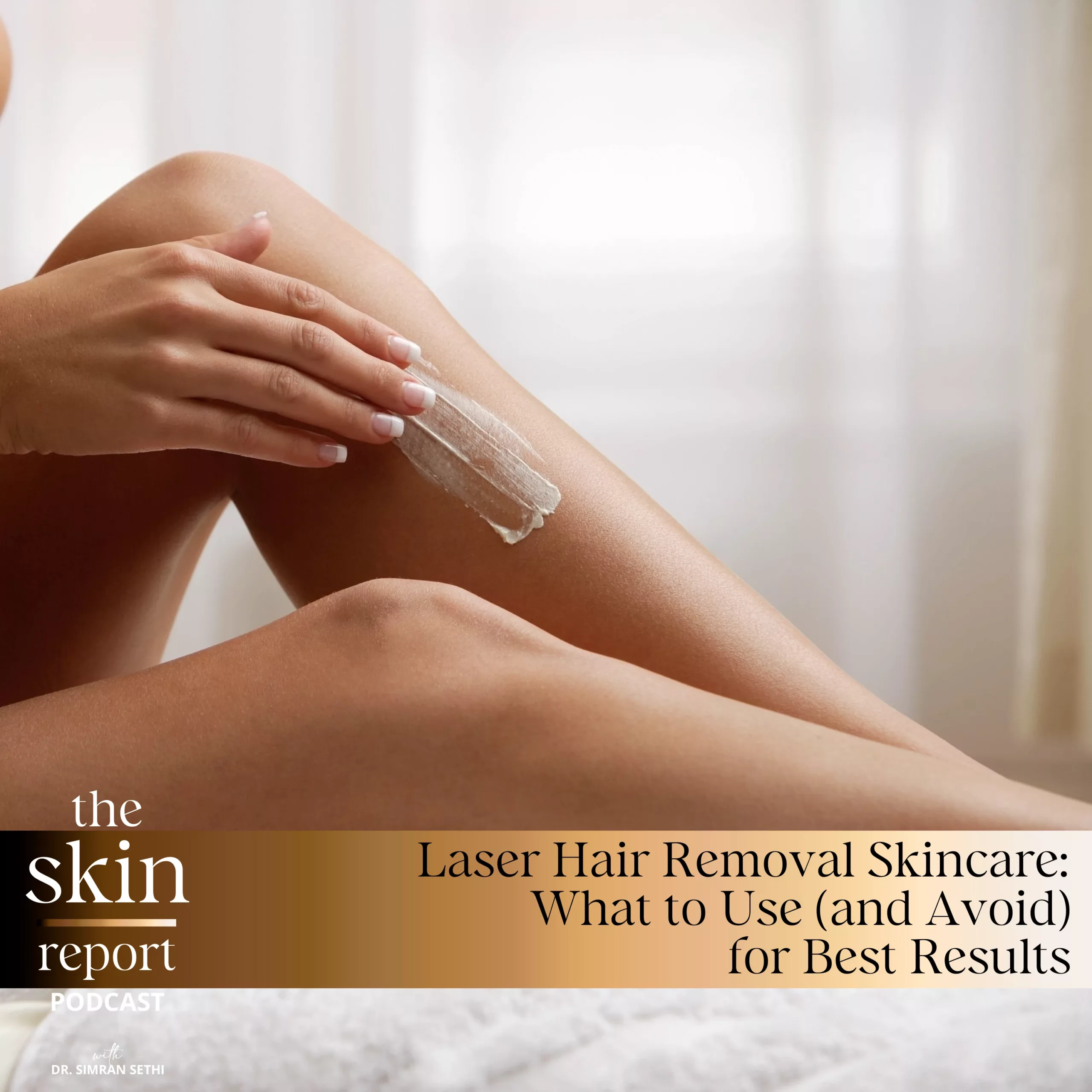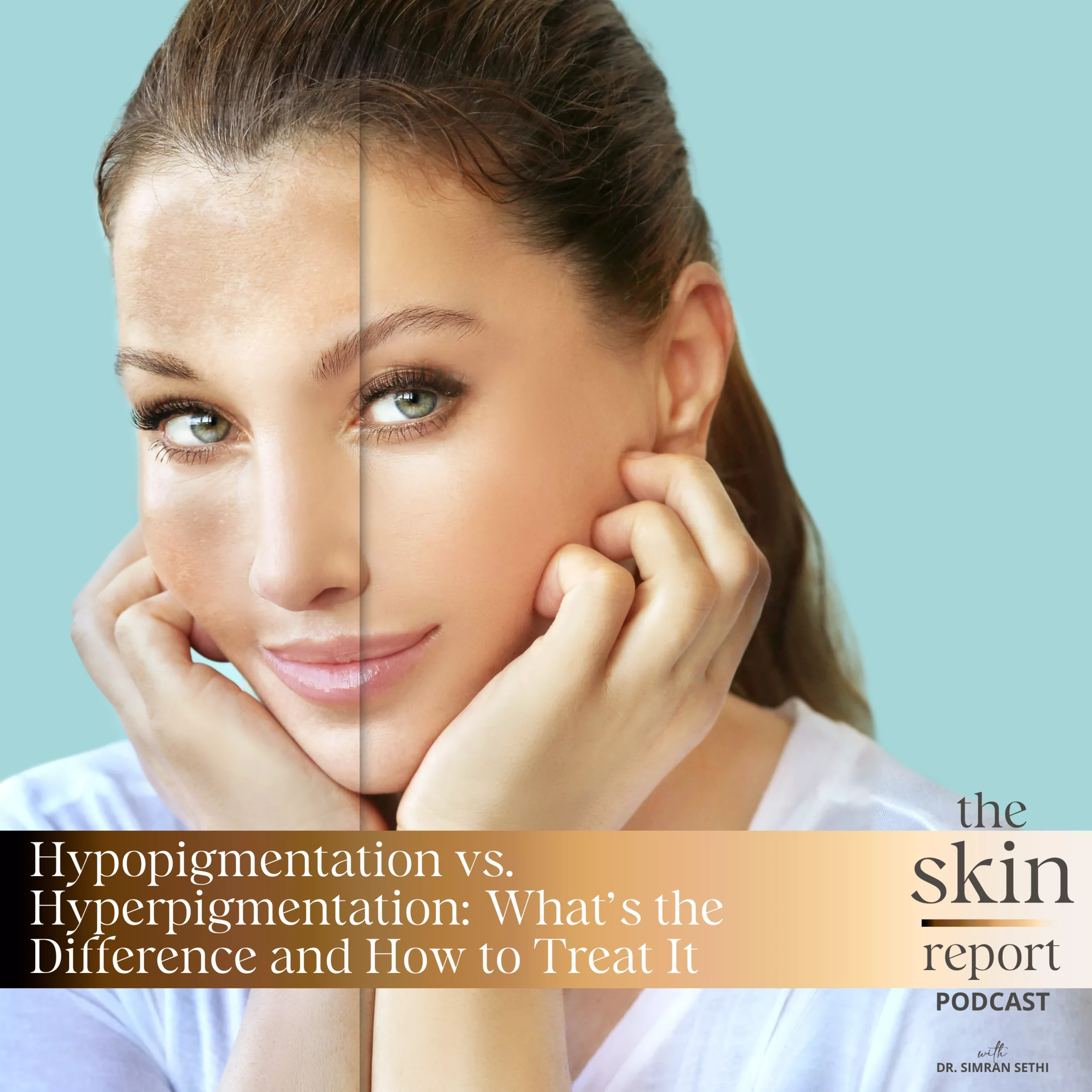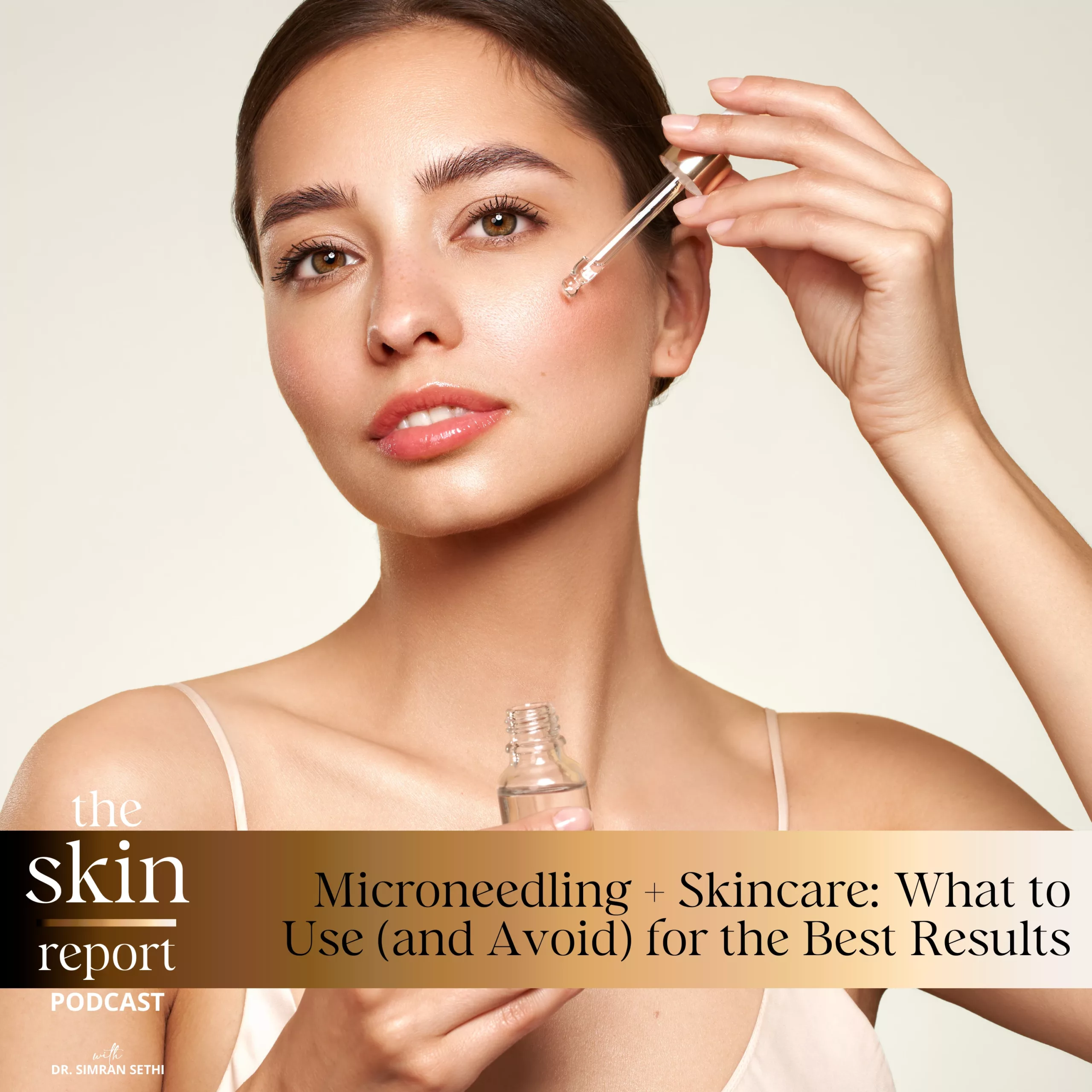This transcript was exported on October 3, 2023 -view latest version
here.
Skincare can sometimes feel overwhelming. Whether it’s finding the right products, ingredients, or treatments, there’s a lot out there, but not always for people of African, Hispanic, Middle Eastern and Eastern South Asian descent. That’s why I set out to educate myself and others so that we can all feel beautiful in our skin.
Hello, and welcome back to The Skin Report. I’m Dr. Simran Sethi, an Internal Medicine Doctor, mom of three, and CEO and Founder of renewMD Medical Spas and Skin by Dr. Sethi.
Today,I’m excited to kick off the third season of The Skin Report with an episode surrounding this month’s theme: skincare and culture. So, let’s begin.
Culture plays an important part in everything we do, determining how we interact, communicate and function in society. But with the skincare industry’s strong presence in the American marketplace, it can be easy for some of the significant skincare themes from different cultures to get lost in the melting pot. This isn’t the first time we’ve discussed culture on this podcast. And in support of this month’s skincare and culture theme, we will be revisiting some of the important related topics covered in previous shows. But for this episode I wanted to talk about the cultural nuances that have existed and still continue to exist in skincare today.
Throughout history, people have applied natural ingredients within their practices to care for, treat and protect their skin. These organic ingredients have become a part of their culture with their use in skincare spanning generations. But as beauty trends change and transform, it seems that today we are seeing a divide in how companies are choosing to develop and market their skincare merchandise. While some companies are moving away from using natural ingredients in their products in favor of more medical grade components, others remain dedicated to the use of organic and culturally significant elements in their formulations.
So, why is culture important in skincare? How does it impact the beauty industry? And should cultural ingredients continue to exist in skincare products through the years to come? Stay tuned to find out.
Before we begin to discuss the science behind cultural ingredients in skincare formulations, I wanted to speak on the important role that culture plays in the global marketplace today.
Consider my inspiration for this episode, which was South Asian New York Fashion Week. This event will take place this month and will feature styles and fashions influenced by designers across the South Asian diaspora. South Asian New York Fashion Week is a perfect example of culture significance in the global marketplace. As South Asian designers from across the world gather to show their designs at the New York City event, spectators, media outlets and trendsetters alike can gain inspiration from their work. Events like these help people to get in touch with their roots or become more familiar with the different cultures and backgrounds that make each of us unique.
Now, what does this all have to do with skincare? Just like with fashion, different cultures worldwide influence the global beauty market. Global skincare corporations maintain cultural awareness to create products that appeal to as many consumers as possible. By considering the customs, values, beliefs, and traditions that exist among different cultures, they are better prepared to create merchandise that will fuel their international success across demographics.
Let’s look at an example that is gaining traction in the skincare universe: Korean beauty. K-Beauty is one of the leading beauty and skincare markets. As a result, foreign brands have been recognizing the popularity of K-Beauty trends and adapting their marketing strategies accordingly, in hopes of replicating its success. Thanks to the influence of K-Beauty, consumers worldwide have been able to experience new and beneficial skincare techniques that are formed as a result of modern day Korean culture.
Culture is significant in the skincare industry as it means to promote innovation and creativity. As more brands become inspired by cultural trends, their consumers can experience new types of products, enabling them to embrace diversity and appreciate the beauty that stems from different social backgrounds. While the fashion world can borrow cultural inspiration through use of different textiles, patterns and styles, culture’s influence on skincare can be seen in ingredients that make up product formulations.
Different societies throughout time and across the globe have all practiced skincare in their own unique ways. This commonly meant harnessing the resources available to them in their environment that would produce the most beneficial effects on their skin. The uses of natural ingredients in skincare can span generations and are often tied in with traditions and beliefs that are culturally significant. However, as time went on, global trading has made more ingredients accessible, and today, with our improved understanding of skin science and health, we have become more knowledgeable on the benefits and drawbacks of utilizing these natural ingredients in skincare. As a result, many skincare brands are choosing to forego the use of organic culturally significant elements in favor of medical grade ingredients.
To better explain what I mean, consider coconut oil Being native to the tropical regions of Southeast Asia, coconut oil was an easily accessible resource for moisturizing the skin. As such, this ingredient has held cultural significance for the people in these regions to this day. But if you recall an episode from season one about the use of coconut oil in skincare, you may remember that coconut oil isn’t a suitable moisturizer. While it makes sense why it was used by certain cultures, years of research in skin science has revealed that applying coconut oil directly to the skin can clog pores leading to breakouts and irritation.
Alternatively, by choosing a medical grade skincare product that uses glycolipids instead, people can experience all of the hydrating benefits of coconut oil without the risk of irritation or clogged pores. Coconut oil can also be an ingredient in skincare products, but formulated in a way that it does not clot pores while still delivering hydrating benefits. A good example of this can be found in my skincare lines Resurfacing Face and Body Cleanser, which has the highest concentration of salicylic acid on the market, but does not dry the skin out and promote skin barrier breakage because it also contains 1% extra virgin coconut oil.
So, does this mean that culturally significant ingredients have no place in skincare? Well, not quite. Turmeric is another culturally significant ingredient that has been long used in skincare. Its cultural significance is strongly tied to India as the spice has been incorporated within religious practices and ceremonies, Indian brides have even used turmeric to treat their skin with the intention of producing a clearer and brighter complexion in time for their wedding day.
In Ayurvedic practices, turmeric is considered anti-inflammatory and antimicrobial.I believe that because it reduces inflammation, it can brighten skin by reducing post-inflammatory hyperpigmentation. However, as anyone who has applied turmeric directly to their skin knows, turmeric is also a warm ingredient that heats up the skin. If applied incorrectly, it can actually irritate the skin instead of calming it. That is why many turmeric masks are a combination of turmeric with milk or yogurt, to help cool the effects of turmeric down.
Many people still use organic turmeric in their skincare. Whether they choose to incorporate the ingredient for cultural reasons or not, it can have a brightening effect on the skin. If ingredients like turmeric have stood the test of time being effective over thousands of years, their benefits should definitely be tapped into today. But why not do so in combination with other great advances we have made in skincare?
Turmeric in combination with a better vehicle for delivery into our skin’s dermis would be a much more effective choice than applying it into the skin directly. When we apply anything onto our skin, we are only absorbing about 20% of it. But if the formulation is not designed for penetration, like a milk or turmeric mask, then the absorption reduces even further. In other words, we are so lucky today that we know so much more about skincare science, that I’m a bigger fan of a combination of ancient beauty ingredients with modern day science so that the effects of those ingredients are enhanced by better delivery into our deeper skin layers. I love the effects of turmeric, but don’t use it on my skin because I still think we need a better way of capturing those benefits in a skincare formulation that actually goes to the dermis instead of just sitting on top of the skin and potentially irritating it or just giving it a yellowish hue.
In the meantime, even though I haven’t found a turmeric formulation that effectively goes to the dermis, let me take a minute to give you a medical grade yet botanical solution for skin brightening. Medical grade products that contain stabilized vitamin C can help users achieve a brighter, even toned complexion without temporarily staining their skin. I know that the vitamin C game in the skincare world is very, very confusing and saturated. If you are looking to learn about the different types of vitamin C and which one might be right for you, listen to season two, episode eight of my podcast, where I’ve created a buyer’s guide for vitamin Cs.
So, what’s the verdict? Should culturally significant ingredients maintain a place in skincare or should these natural formulations make way for medical-grade product? The answer to this question isn’t cut and dry. As with coconut oil, our current understanding of skin science tells us that some organic ingredients may not be the best option when applied directly to the skin. Still, coconut oil can be utilized in skincare. I highly recommend that you check out the coconut oil episode from season one for more information on this interesting topic to learn more.
If you listen to other episodes on this podcast, you know that ingredient delivery into our skin’s deeper layer, the dermis, is a very important component in skincare. The dermis is where we make all our skin proteins and, if an ingredient is to help build collagen, rejuvenate and brighten the skin effectively, it has to reach the dermis to do so. I truly believe in the benefits of cultural ingredients like turmeric or even sandalwood, but don’t believe that applying them directly in an oil or onto the skin is giving us a benefit we hope to see.
Finally, I wanted to kick off the season with the topic of culture because its incorporation within skincare is important to me. It also deeply relates to why I started this podcast.
Skincare is essential for everyone, and I believe that all people deserve access to products and information that will help them care for and nourish their natural skin. Now, more than ever, it is easy to overlook the ways in which different cultures have impacted our lives and the products we use today. But regardless of who we are, our cultural background or the color for our skin, we all experience the combined efforts of humankind in all of its many forms. This show is about honoring our ethnicities, cultures, and skin tones with practices that will improve our skin health for years to come.
Thanks for listening, and until next time. Love your skin, love yourself, and celebrate your beauty.
If you’d like to learn more about science-backed skincare or medical aesthetic treatments, please subscribe to and turn on notifications for The Skin Report so you always know when a new episode is up. We have a newsletter that you can sign up for on skinbydrsethi.com so that you can stay up to date on all our latest products and more. Additionally, if you have a skincare question or want to make an episode topic recommendation, please message me at theskinreportbydrsethi.com, which is linked in my show notes, and I’ll be sure to answer your question in an episode soon.
Transcript by Rev.com


